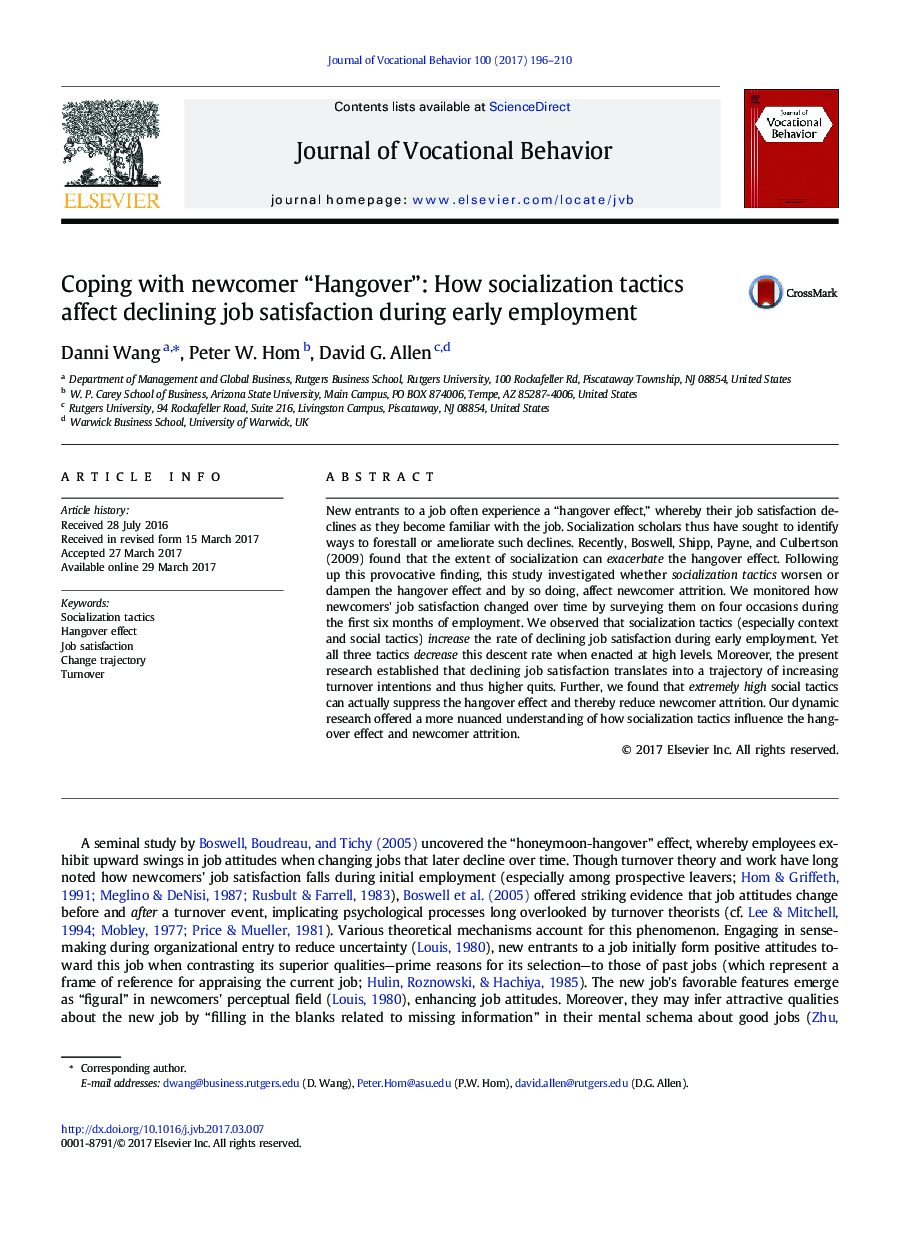| Article ID | Journal | Published Year | Pages | File Type |
|---|---|---|---|---|
| 5035128 | Journal of Vocational Behavior | 2017 | 15 Pages |
â¢We investigate two competing effects of socialization tactics to turnover.â¢Context and social tactics have negative linear relationships with job satisfaction trajectory.â¢Socialization tactics have curvilinear relationships with job satisfaction trajectory.â¢Declining job satisfaction translates into increasing quit intentions and higher turnover.
New entrants to a job often experience a “hangover effect,” whereby their job satisfaction declines as they become familiar with the job. Socialization scholars thus have sought to identify ways to forestall or ameliorate such declines. Recently, Boswell, Shipp, Payne, and Culbertson (2009) found that the extent of socialization can exacerbate the hangover effect. Following up this provocative finding, this study investigated whether socialization tactics worsen or dampen the hangover effect and by so doing, affect newcomer attrition. We monitored how newcomers' job satisfaction changed over time by surveying them on four occasions during the first six months of employment. We observed that socialization tactics (especially context and social tactics) increase the rate of declining job satisfaction during early employment. Yet all three tactics decrease this descent rate when enacted at high levels. Moreover, the present research established that declining job satisfaction translates into a trajectory of increasing turnover intentions and thus higher quits. Further, we found that extremely high social tactics can actually suppress the hangover effect and thereby reduce newcomer attrition. Our dynamic research offered a more nuanced understanding of how socialization tactics influence the hangover effect and newcomer attrition.
